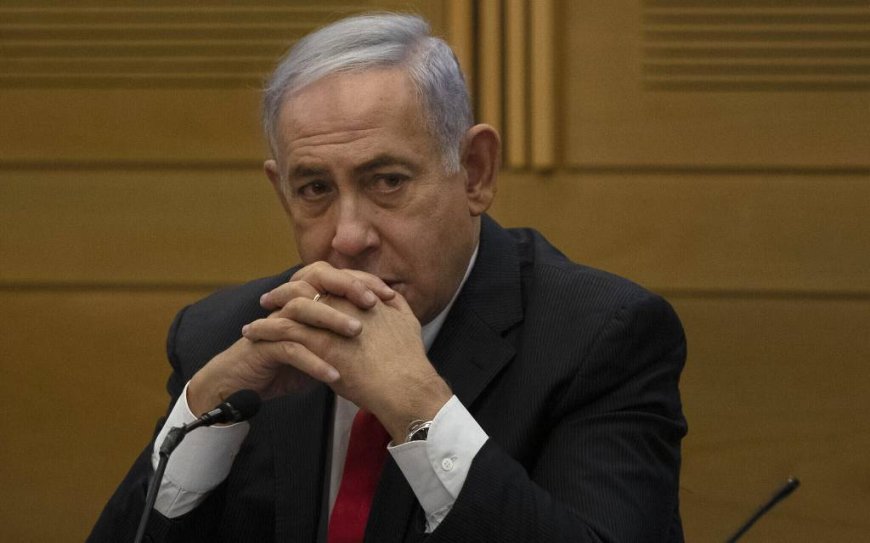Israel on the Edge of Collapse: Will Netanyahu be the Scapegoat following the end of the war in Gaza?
Nearly eighteen months ago, as the tenure of former Israeli Prime Minister Naftali Bennett was drawing to a close, he penned a communiqué entitled "Letter to the Silent Population of Israel."

In this missive, Bennett highlighted the formidable perils that could arise from the return to power of Benjamin Netanyahu and his cohort. Bennett astutely pointed out the looming disaster associated with Netanyahu's potential resurgence, cautioning that Israel’s very existence in its 80th anniversary might be jeopardized. In the letter's preface, Bennett articulated:
"Throughout history, the Jewish people have twice experienced the establishment of an independent and unified nation in this land. First, there was a Jewish state that endured for 80 years, only to disintegrate due to internal conflicts and internecine strife. The second time, Jewish political sovereignty spanned approximately 77 years until it was ultimately obliterated by Roman invasion. Presently, Israel represents the third chapter of Jewish rule. As Israel enters its 75th year, we all face the challenge of determining whether we shall succeed as an independent and united nation, surpassing its 80th anniversary, or fail once again due to internal strife."
Despite Bennett’s ominous premonitions, Netanyahu assumed office several months later, forming the most radical cabinet in the history of the Zionist regime. This administration comprised extremist right-wing and racist parties whose primary interests appeared to be self-serving.
At the outset of the new year, Netanyahu's administration initiated its work, introducing an extremely controversial judicial reform bill. The plan aimed to achieve several objectives: resolving Netanyahu's legal predicaments through judicial amendments, diminishing the power of the judiciary vis-à-vis the political establishment, expanding Netanyahu's political clout, and securing a dominant and perpetual position as prime minister.
Despite vehement and widespread protests, as well as repeated and persistent warnings from critics regarding the calamitous outcomes of endorsing this bill, Netanyahu's government obstinately persisted in its ratifications over a ten-month period.
During these ten months, the occupied Palestinian territories bore witness to escalating conflicts, tensions, and acrimonious political divisions between the government and the opposition movement as weekly rallies against Netanyahu's government unfolded within occupied Palestine. One of the salient implications of this bill was the emergence of violent political dissension within the Israeli military-security apparatus.
A countless number of reserve forces and officers, protesting against the policies of the Netanyahu government, threatened to resign and abstain from participating in military duties. The extent of this issue was so palpable that even the White House intervened in Israeli internal affairs, reproaching Netanyahu for his divisive line of action.
Simultaneously, Netanyahu's extremist and racist cabinet exacerbated the conflict with Palestinians to such an extent that in 2023, the Zionists endured a record number of casualties after the Second Intifada due to martyrdom-seeking attacks by Palestinian youth.
Over the course of ten months, Netanyahu pushed the Israelis to an unprecedented precipice in the 70-year history of the Zionist regime. As tensions reached their zenith and Israeli society became deeply divided due to Netanyahu's self-seeking policies, violence with Arabs escalated dramatically.
Unexpectedly, a cataclysmic event unfolded, forever etching October 7, 2023, as the darkest day in the annals of the Zionist regime. In a remarkable and audacious operation, the Palestinian resistance forces in Gaza endeavored to breach the Israeli much-vaunted separation walls, launching attacks on Zionist military positions and resulting in the deaths of several Zionist occupiers, while others were subsequently captured.
The impact of this operation, dubbed Al-Aqsa Storm, on the Zionist regime was so devastating, astonishing, and fatal, leaving the Zionists flabbergasted and unsure of how to respond. The images and videos showcasing successive blows to the Zionist regime's infrastructure left the political and military authorities in Tel Aviv totally perplexed.
Although this war approaches its eighteenth day without resolution, internal reckoning among Israeli politicians has already begun in search of the primary culprit behind this harrowing and abject defeat. From the outset, Netanyahu has been the target of accusations and opprobrium leveled by the Zionists.
Today, Netanyahu and his clique find themselves incapable of effectively managing the war effort. Apart from indiscriminate bombing of Gaza resulting in the loss of thousands of civilian lives, which has drawn global condemnation, he has achieved nothing. Hamas remains undeterred, and Netanyahu is acutely aware that this predicament harbors a bleak and dismal future for him and his Likud Party.
The latest survey conducted by the Hebrew daily Yedioth Ahronoth divulges that 75% of Israelis hold Prime Minister Netanyahu directly responsible for the humiliating military fiasco on October 7th. Previously, Zionist media reported on the discord between Netanyahu and the regime's military top brass, their inability to reach a consensus regarding a ground offensive in Gaza.
Recently, Nadav Eyal, an analyst from Yedioth Ahronoth, argued that after sixteen days of a dreadful military conflagration in Gaza, Netanyahu remains shocked, with his cabinet now operating without a clear strategy. Eyal further asserts that Netanyahu's cabinet evinces poor management and lacks effective military leadership.
When Netanyahu planned to exploit his authority to render the judicial system impotent, consequently closing his embezzlement cases and securing a position of undisputed leader, he likely never envisioned that a fatal blow from the Palestinian resistance movement would obliterate all his political designs, as his legal cases remain unresolved, and the prospect of judicial reforms appears increasingly unlikely.
Following the cessation of hostilities, internal accounts will be settled in Israel, and undoubtedly, the primary scapegoat of this catastrophic failure will be Benjamin Netanyahu himself, who shall conclude his political career in utter ignominy.













































